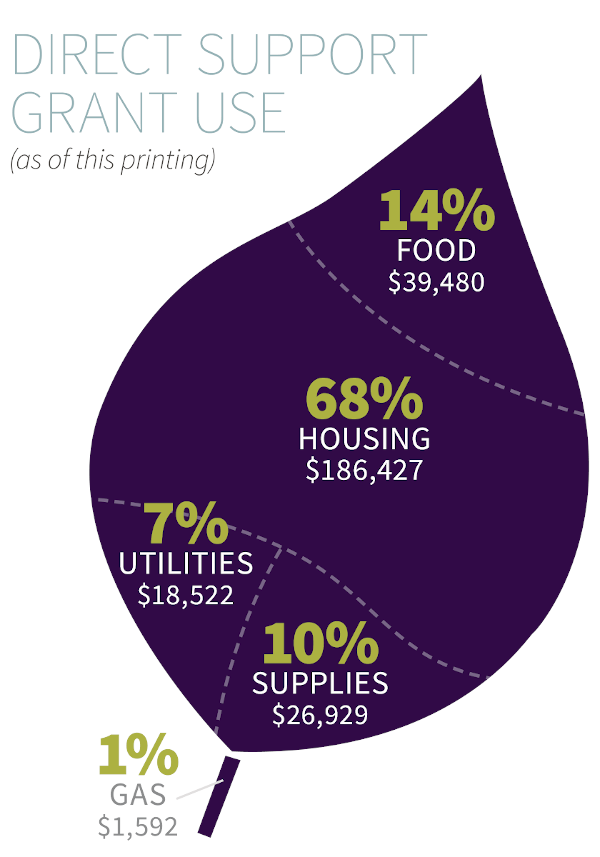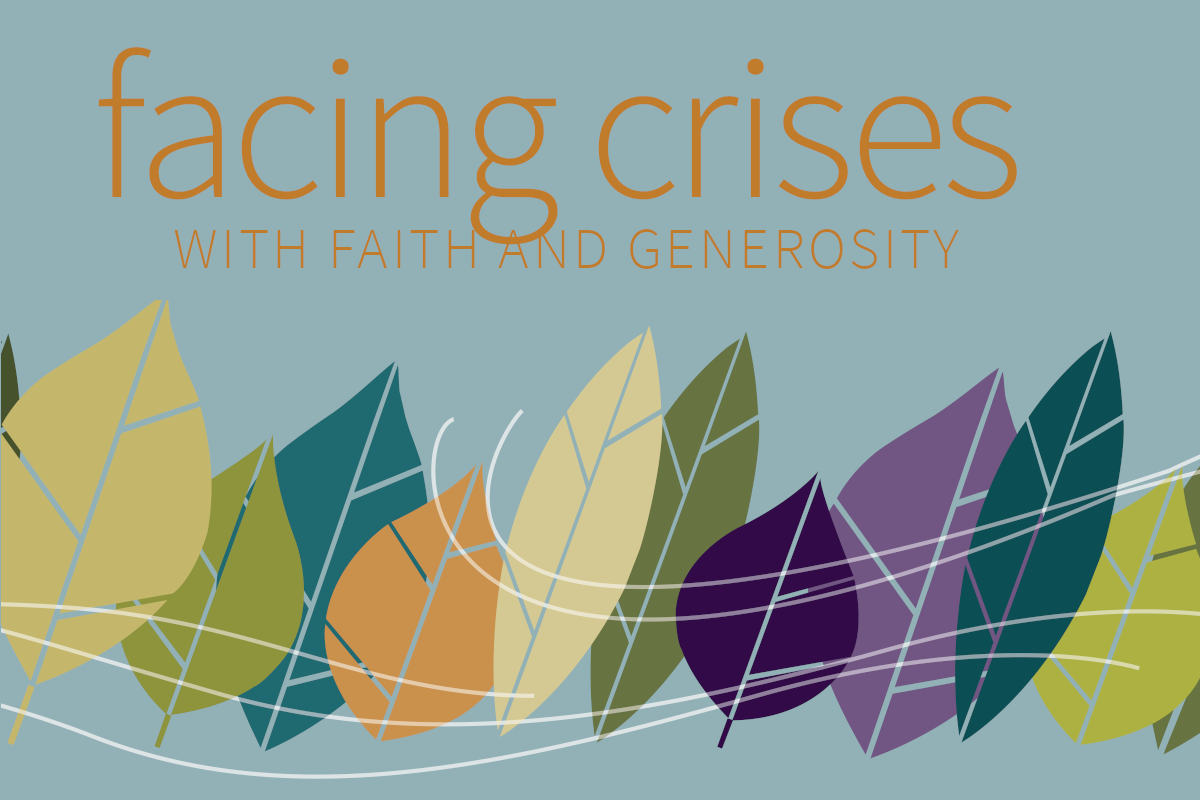Minnesota Catholic Relief Fund: Facing Crises with Faith and Generosity
During the first wave of the COVID-19 pandemic, parishes and Catholic schools in Minnesota faced unprecedented challenges both financially and operationally. While some were financially positioned to endure the crisis, others were not as fortunate.
In response, the Catholic Community Foundation of Minnesota (CCF) quickly established the Minnesota Catholic Relief Fund (MCRF) in partnership with the Most Reverend Bernard A. Hebda, Archbishop of Saint Paul and Minneapolis.
An unprecedented wave of giving from new and existing CCF donors immediately followed. Many donors already tithed regularly to their home parishes and gave generously to Catholic schools. Yet in this time of extraordinary need, they wanted to do still more.
Initial Grantmaking with Divine Speed
Unlike many of the funds managed by CCF, the funds donated to the MCRF are not intended to grow in perpetuity. Rather, they’re meant to be sent as quickly as possible to wherever they can do the most good.
Within six weeks of establishing the MCRF, more than $659,000 in grants was disbursed, including immediate operating grants to 11 parishes deemed as “most in need” based on analysis performed by the Archdiocesan Economic Task Force.
This sum also includes $210,000 that was granted to 22 parishes providing direct support to individuals and families in their communities. These grants — made possible in part by a $100,000 grant from the Minnesota Disaster Recovery Fund of the Minnesota Council on Foundations — assisted more than 360 individuals and families in securing rent, groceries, and medical supplies.
A Collaborative and Consultative Grantmaking Strategy
“Collaborative and consultative are the words that come to mind when I describe our strategy,” says Father Ralph Talbot, pastor of St. Mary of the Lake and MCRF Advisory Committee member. “I think pastors were extremely grateful that we came to them asking them how we could help, rather than telling them what we were going to do.”
“Thanks to our longstanding relationships with parish and school leaders throughout the archdiocese, we knew we could trust them to make the best and most informed decisions about how to meet the needs of their local parishes, schools, and communities,” says CCF board and MCRF Advisory Committee member Frank Forsberg.
A Just and Timely Crisis Response
The unrest and turmoil related to George Floyd’s unjust death resulted in an emergency meeting of the MCRF Advisory Committee on June 8, 2020 — at which it established a special sub-fund called “Neighbors in Need.” This sub-fund was specifically designated to help parishes and local organizations support the basic needs of their parishioners through micro-grants.
“Soon gifts were pouring in from generous donors across the archdiocese — thanks in no small part to referrals from Archbishop Hebda whenever he was asked by donors how best to serve the community,” says CCF Vice President of Impact Meg Payne Nelson.
By early July, the Advisory Committee made 10 Neighbors in Need grants, primarily to parishes located in the neighborhoods most affected by property destruction.
Back to School Emergency Grants
When the MCRF Advisory Committee met in late August, data provided by the Catholic Finance Corporation (CFC) estimated that costs associated with safely reopening parish schools under COVID-19 restrictions, as well as building infrastructure for remote learning, could reach $13 million.
The committee decided to award a total of $557,200 in emergency grants of $7,360 each to all K-8 schools in the archdiocese.
A Crisis-Inspired Strategy with Lasting Impact
As of this publishing, the majority of funds have been entirely disbursed, but the strategy for supporting our Catholic community in times of crisis remains.
“As a foundation, our grantmaking has traditionally had schedules and timelines and clearly stated purposes,” concludes Frank. “This past year has demonstrated we can also be nimble and flexible in responding to unexpected needs in our Catholic community.”
Looking ahead, Father Talbot feels that the gratitude and connections felt by pastors, principals, and parishioners will endure. “We reinforced the idea that we really are one Church,” he says. “When one part of the body hurts, the whole body hurts.”
Impact

Continuing Ministry
When the Church of St. Mary in Le Center had to stop holding in-person Masses, parishioner contributions sharply declined. Their grant from the MCRF offered operational support during that time. But it also helped them pave a way to gather in-person again. They used funds to purchase personal protective equipment (PPE) and industrial-grade sanitization equipment. More importantly, they bought materials for a stage so they could host outdoor Masses. Pastor Father James Stiles says, “The grant money allowed us to provide the best ministry possible to our parishioners.”
Breathing Space
Community of Saints Regional Catholic School in West St. Paul experienced a significant drop in tuition revenue in the spring when many families lost jobs and wages. Their grant from the MCRF helped to offset that tuition loss. “We strive to be a stabilizing presence for our students and their families. The MCRF grant allowed us to offset the tuition loss created due to financial hardships on our families, providing us operational stability, and our families breathing space,” says Principal Bridget Kramer.
A Big Thank You for a Small Grant
For one couple at the Church of Gitchitwaa Kateri in South Minneapolis, the distribution they received from the MCRF helped them work toward paying off medical expenses. The husband had undergone two surgeries in February 2020, and the check they received for $116 helped with some of those bills. To the many donors who made this possible, they say, “Chi Miigwech (big thank you).”
Support Now for the Promise of Tomorrow
When COVID-19 hit, the Lake Street restaurant where Brenda works was forced to cut her hours. She could no longer afford groceries for herself and her 15-year-old daughter, so she turned to the food shelf at her parish, Incarnation Catholic Church. Her employer then further reduced her hours amid riots in the neighborhood. Now, Brenda couldn’t make rent. So again, she turned to her parish. With help from a grant from the MCRF, Incarnation was able to provide her with rent assistance for June and July. She works for her daughter’s future. “More than anything,” Brenda says, “I don’t care about myself. I care about my daughter. That she has a career and doesn’t have to depend on anyone.”



